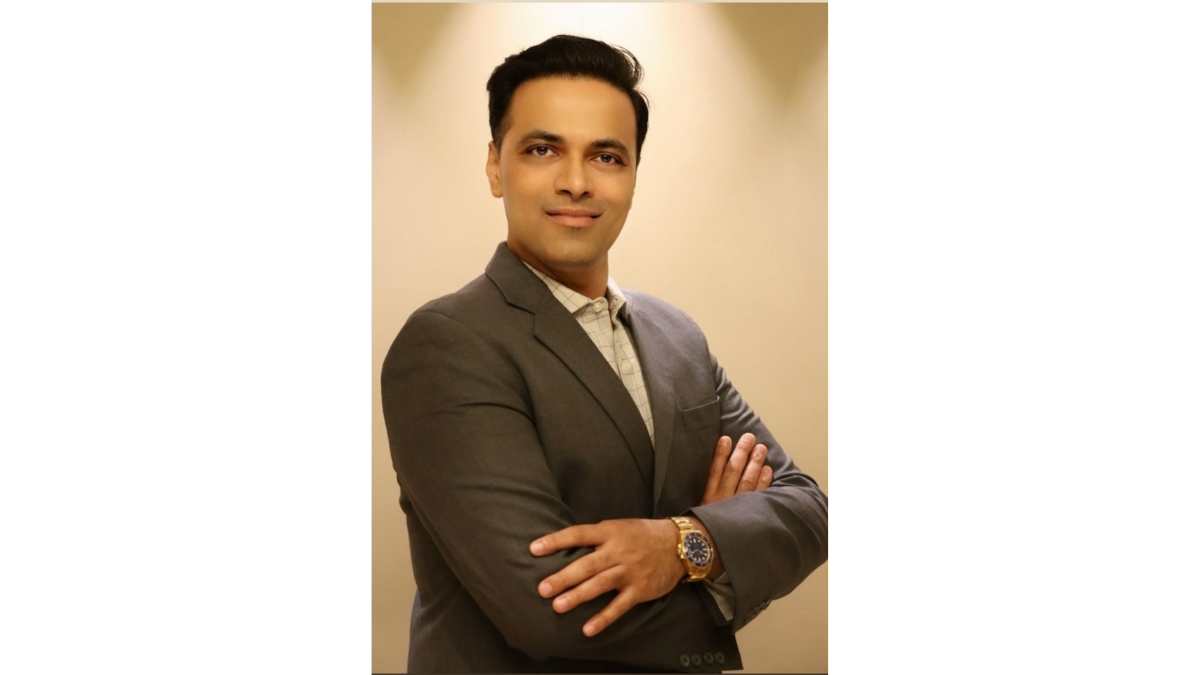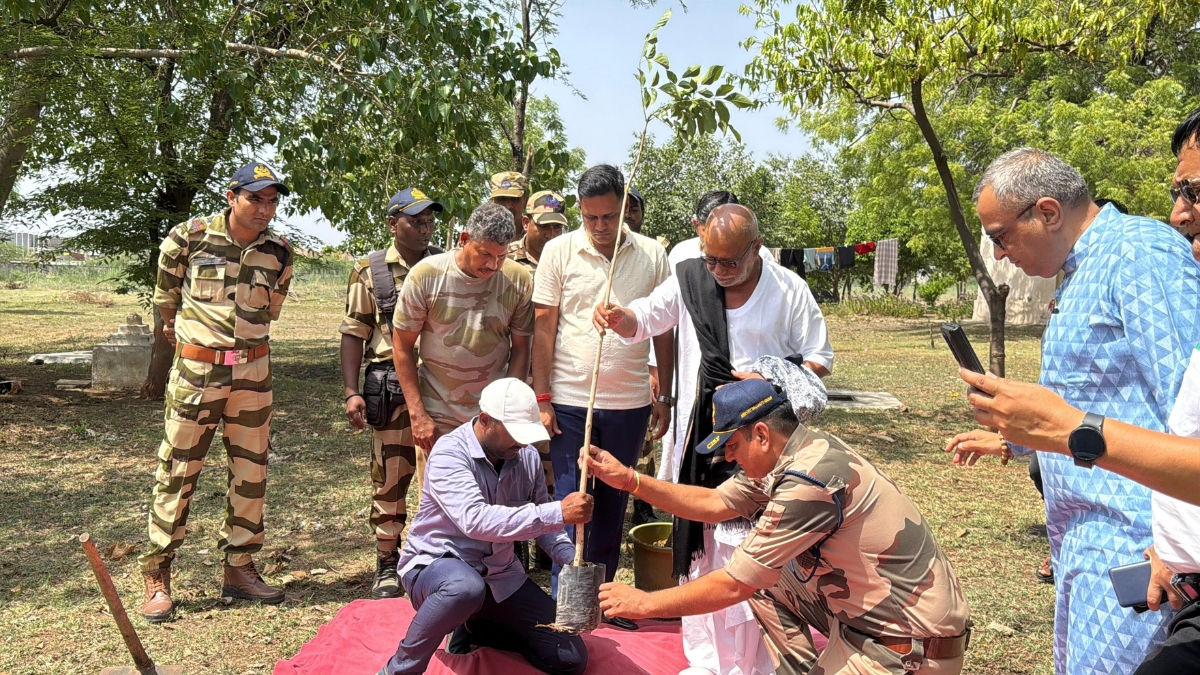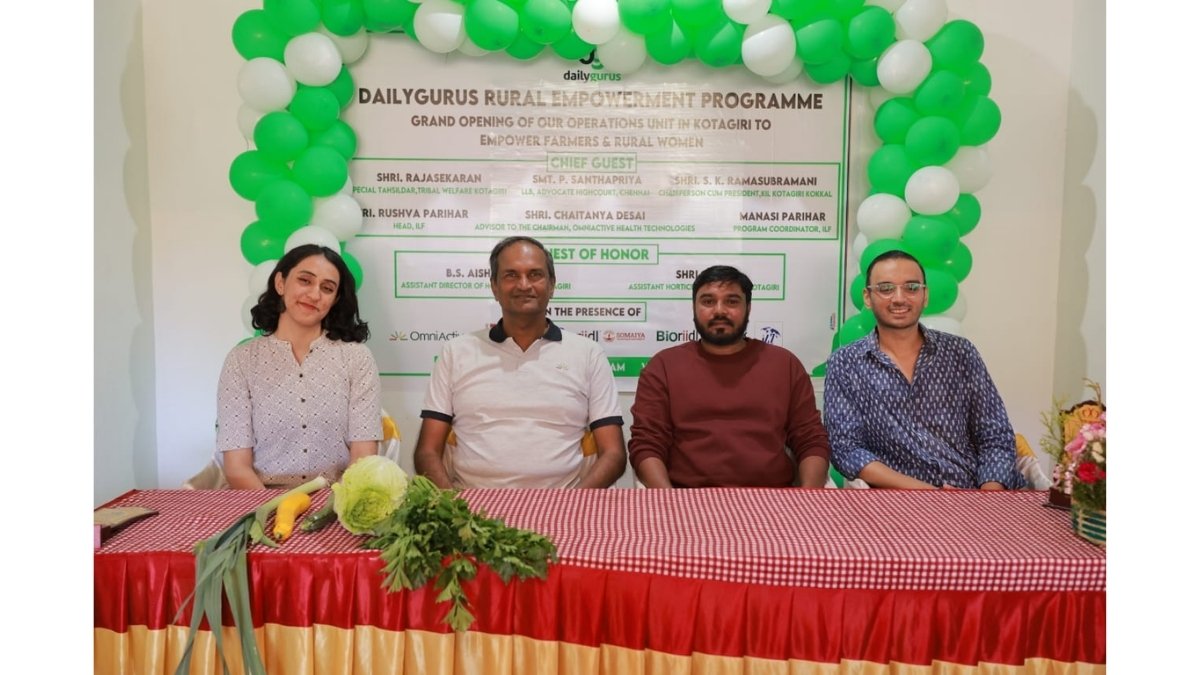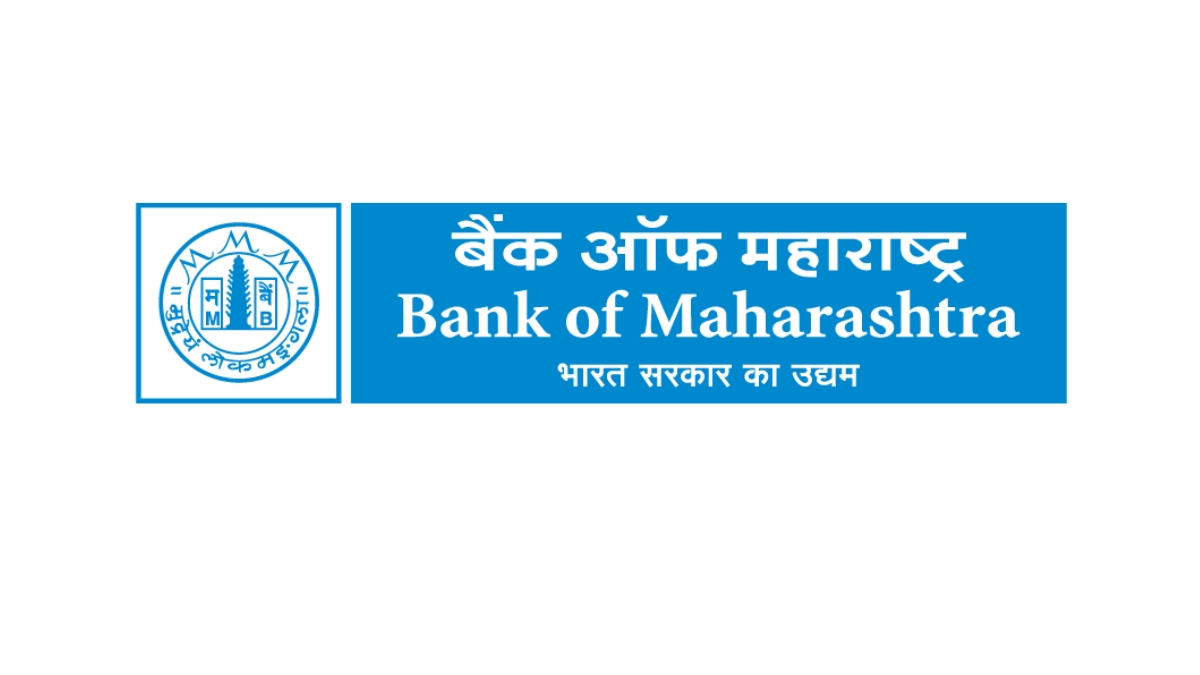Creative tips for success from the Sonder exhibition at Cube Arts Space

Launched in 2014, PhotoSparks is a weekly feature from YourStory, with photographs that celebrate the spirit of creativity and innovation. In the earlier 700 posts, we featured an art festival, cartoon gallery. world music festival, telecom expo, millets fair, climate change expo, wildlife conference, startup festival, Diwali rangoli, and jazz festival.
The artistic movement thrives not just because of creative talent and support from government or industry, but also inter-city and cross-state collaborations between artists, galleries, fairs, and curators.
A good example is the collaboration for the Sonder exhibition by Vis-à-vis Gallery from Vadodara and the Cube Arts Space galleries in Mattancherry, Kerala. See Part I and Part II of our earlier photo essays on the exhibition.
The galleries featured a number of artists, some of whose works are showcased in this series: Yogesh Ramkrishna, Sajith P, Satyanarayana Gavara, Seby Augustine, Sajeesh PA, Suneesh SS, Vijay Kadam, Akhil Mohan, and Jagesh Edakkad.
“The gallery was founded out of love for art and its propagation,” explains Firoz Bava, Director, Cube Arts Space, in a chat with YourStory.
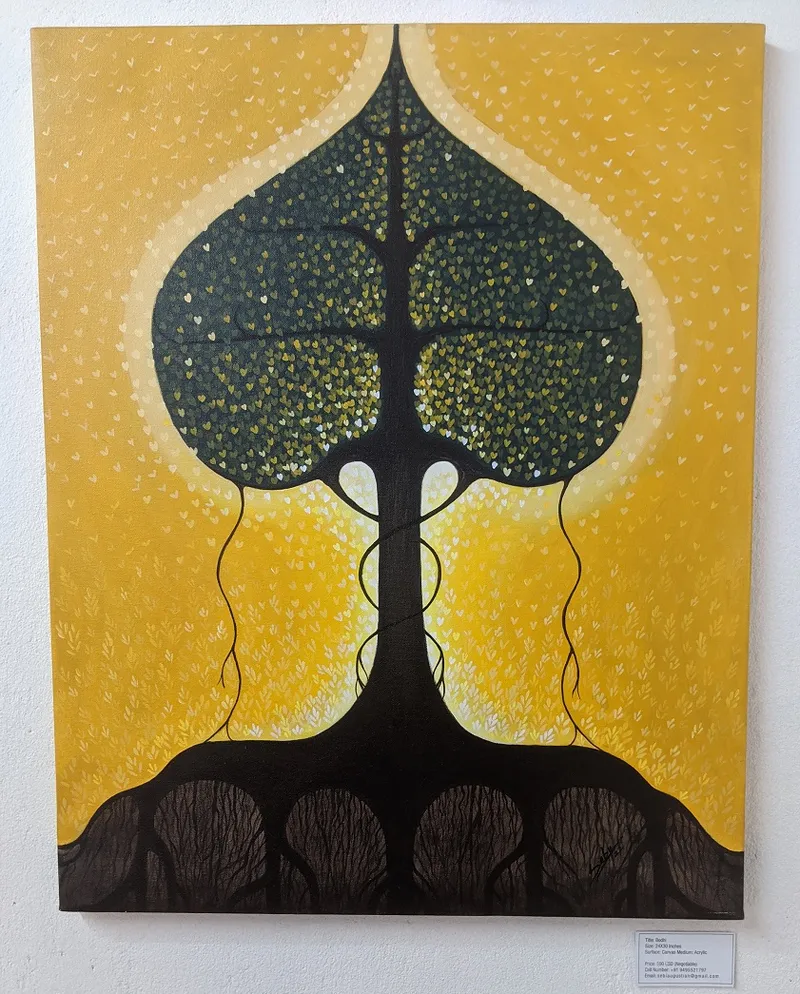
The creative space has featured 45 artists over the last two years in its 13 galleries, which allow for a wide range of individual and group exhibitions.
Firoz started off by studying optometry and running his family’s business as a lens consultant. He now serves as a director at United4 Optical Stock Point, while also managing art shows at local galleries.
He spotted a need for more local venues for artists to display their work. “Fulfillment comes from the fact that a new gallery is in existence,” he proudly adds.
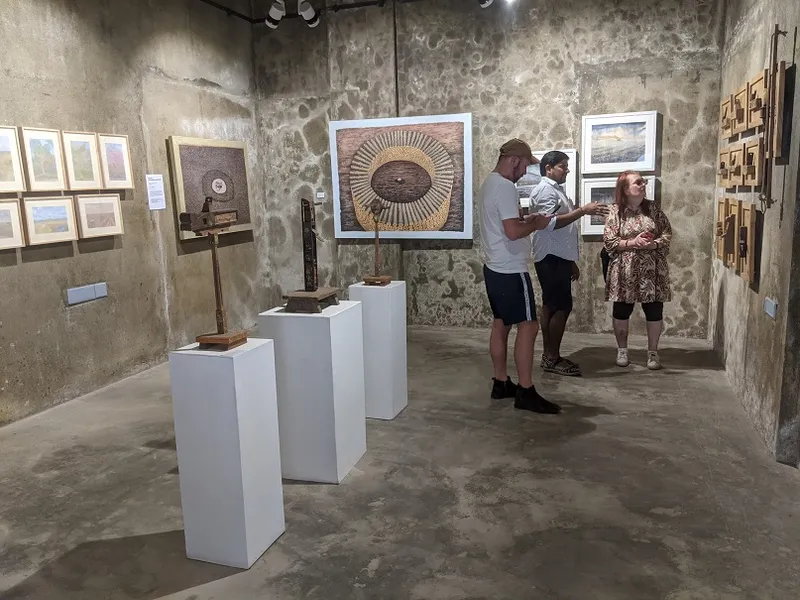
“Art is an expression of one’s inner emotions and feelings—be it social, political, or environmental—for a better existence,” Firoz affirms.
He was pleased with the positive and enjoyable feedback received from the Sonder exhibition. “Having attendees from around the world made it extra special,” he adds.
Noting trends in Indian art today, Firoz points to the fusion of traditional and contemporary elements. “Many artists in India are exploring the intersection of traditional art forms and contemporary ideas,” he observes.
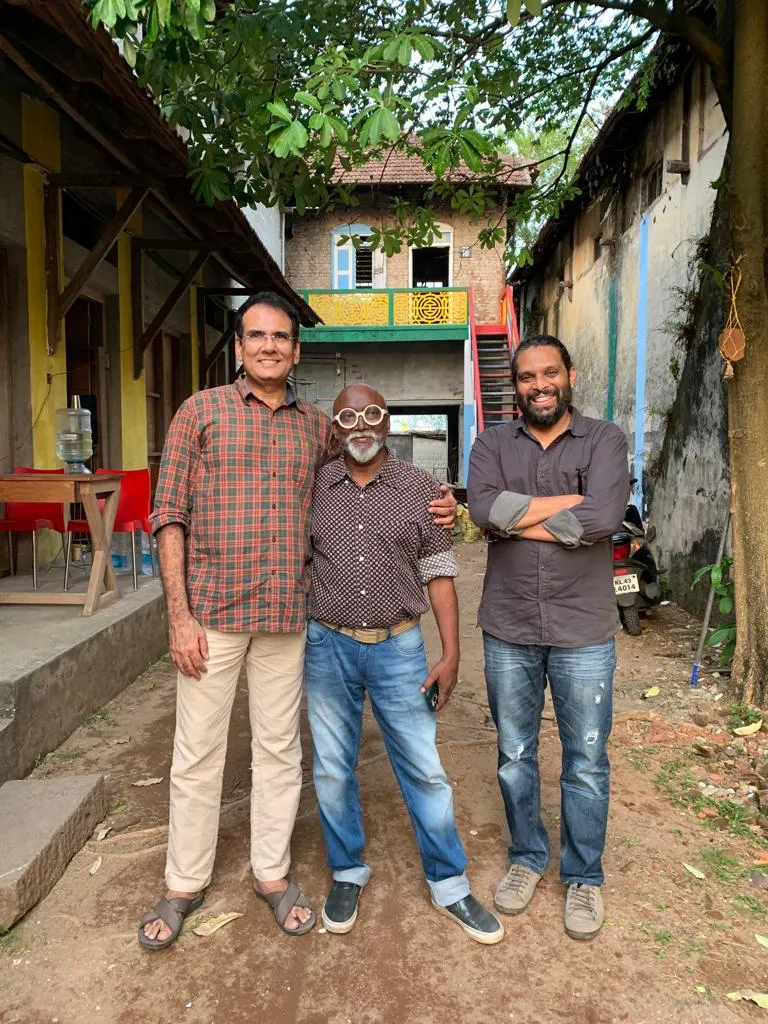
Firoz Bava (R) with Bose Krishnamachari, President, Kochi Biennale Foundation (centre)
“They are blending traditional techniques with modern mediums and addressing current social, cultural, and political issues in their work. Textile-based art practices and print media are becoming more popular,” he says.
The galleries also host workshops on painting, sculpting, folk music, and local dance forms such as Kathakali.
“In a short span of time, many artists from all over have exhibited their work, which gives me immense pleasure as an artist myself. Commercial success allows me to run the gallery and to meet financial obligations,” he explains.
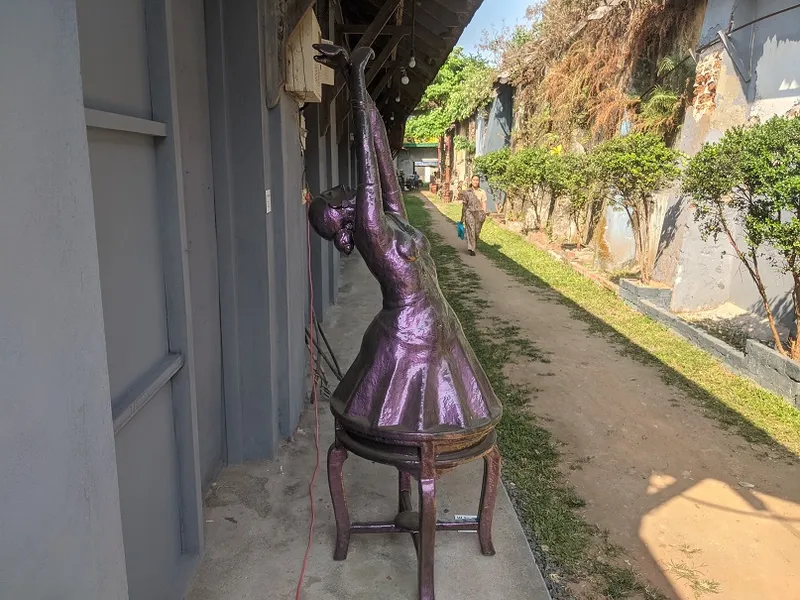
Firoz calls for more art appreciation in society by integrating art education into school curricula at all levels. “Encourage students to learn about various art forms, explore their creativity, and develop an understanding and appreciation for different artistic expressions,” he advises.
There should be opportunities for hands-on art experiences as well. “This can be via visits to museums and galleries,” Firoz says.
The recent COVID-19 pandemic was a particularly tough time for artists. “It was a total shutdown, it felt like we were hanging by a thread,” Firoz recalls.
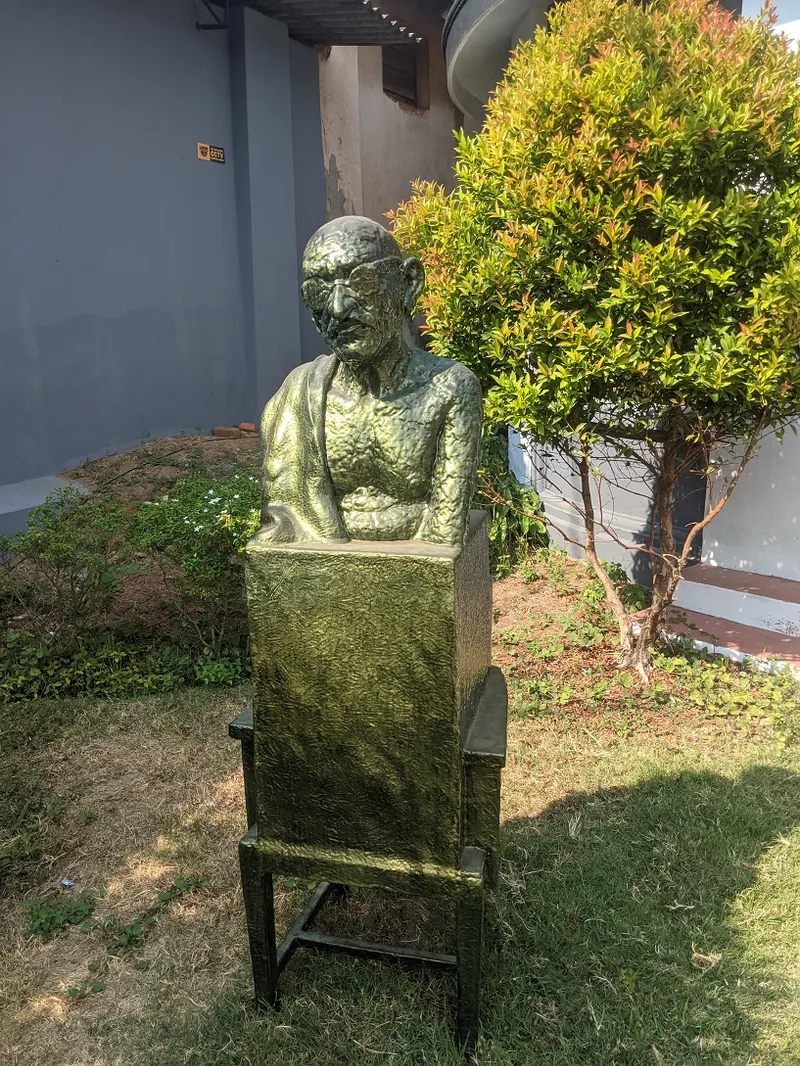
Recovery in the post-pandemic period is proving to be challenging. “It would be great if the government steps forward to give support to galleries and art establishments, which will help the local community and boost tourism,” he suggests.
“The pandemic affected people across the world. Artists too got affected by the sudden standstill and closure of galleries and exhibitions, but many found opportunities as well,” observes exhibition curator Subhakar Tadi of Vis-à-vis Gallery.
“Many artists across the globe created incredible artworks by expressing their quest against what was happening. Many artists have expressed their feelings and ideas in various ways with the pandemic as their metaphor,” he observes.
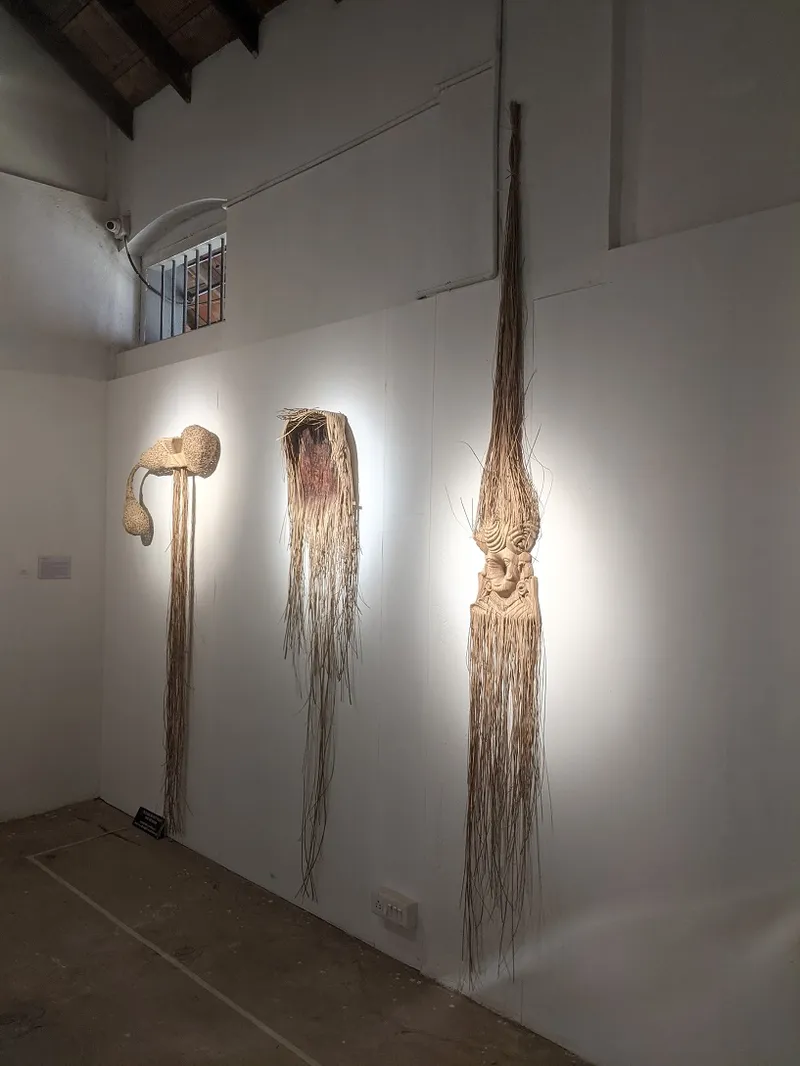
Now that the pandemic crisis has passed, Vis-A-Vis Gallery is planning to be part of various art fairs nationally and internationally, and also planning private shows overseas.
“As an artist and curator of the Sonder exhibition, we had an overwhelming experience. It was wonderful to be a part of the show which represented artists from different genres and with different approaches towards handling materials,” Subhakar enthuses.
“It was an experience to cherish for life. From artist selection to exhibition organising, I have gained confidence. This has helped me understand the whole aspect of curating a show,” he adds.
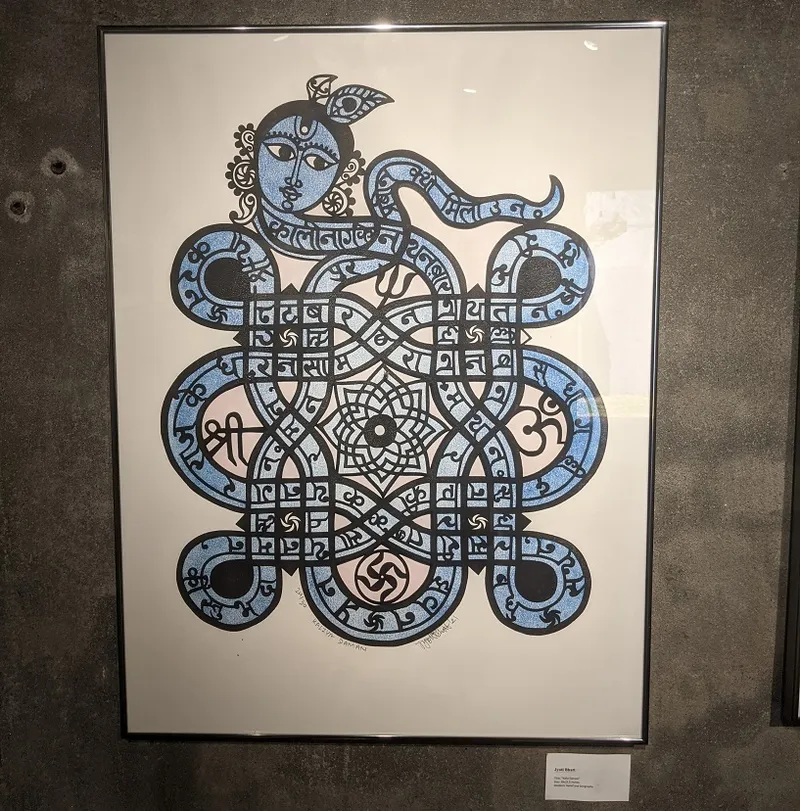
There was positive feedback from Indian as well as international viewers. “It was phenomenal. Positive feedback always gives you the confidence to do things on a much greater level in terms of planning the next show and creating artwork,” Subhakar affirms.
The Sonder exhibition addressed how humans are constantly busy with their own complex lives, and no one has the time to understand everyone’s whole story. But just acknowledging that there is one story is just as important, Subhakar says.
At the exhibition, artist Vijay Kadam’s works explore crafts practices that are becoming obsolete today, while Suneesh SS uses visual storytelling to showcase traditional carpentry tools replaced by new-age machinery. Satyanarayana Gavara portrays the struggle for food during human conflicts.
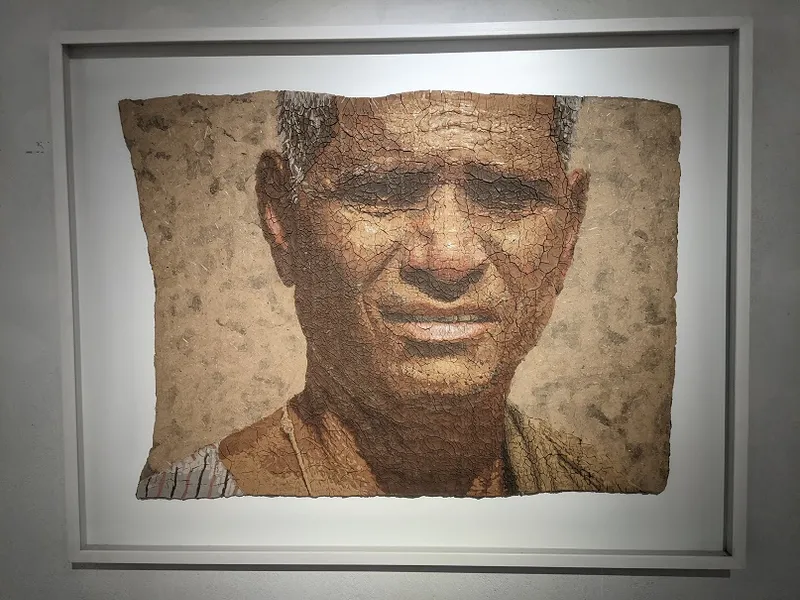
Sajeesh PA’s artworks reflect the humorous as well as worrying changes in people as they evolve. Jagesh Edakkad captures the anxiety from the destruction of familiar landscapes by rapid urbanisation, while Sajith P addresses how human greed has wiped out countless animal and bird species.
Subhakar and Firoz both offer tips for aspiring artists. “Visit as many shows as possible to understand the market. Try to attend various art camps for exposure. And stay humble,” Subhakar suggests.
“Never give up, and stay core to your ideals and ideas. Learn to understand the finance and economics of art,” he adds.
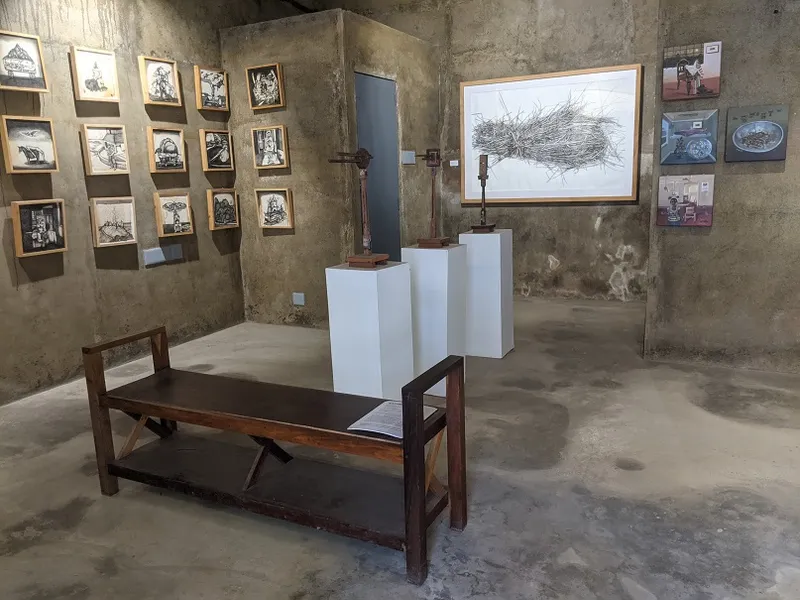
“Become more aware of the art market to help you price your artwork. Build knowledge of various galleries in India and abroad,” he advises.
“Focus on highlighting myriad Indian traditional art forms, and exposing them to the world,” Firoz signs off.
Now, what have you done today to pause in your busy schedule and find new avenues to apply your creativity?
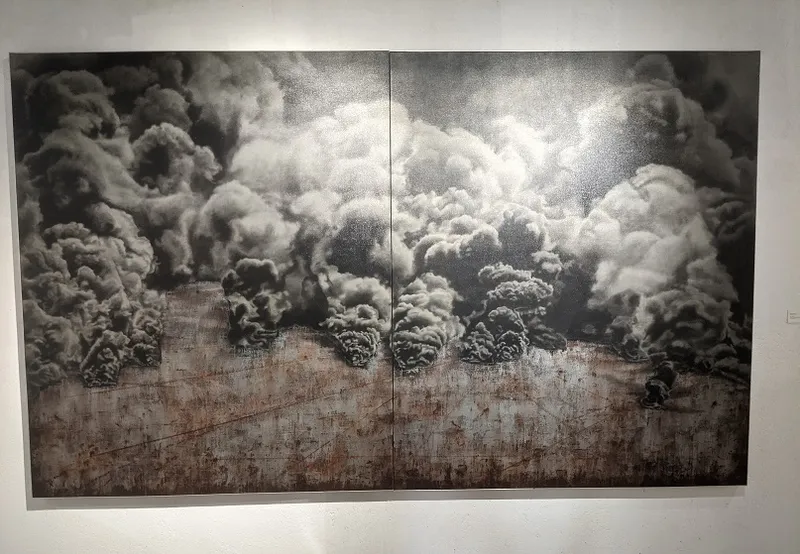

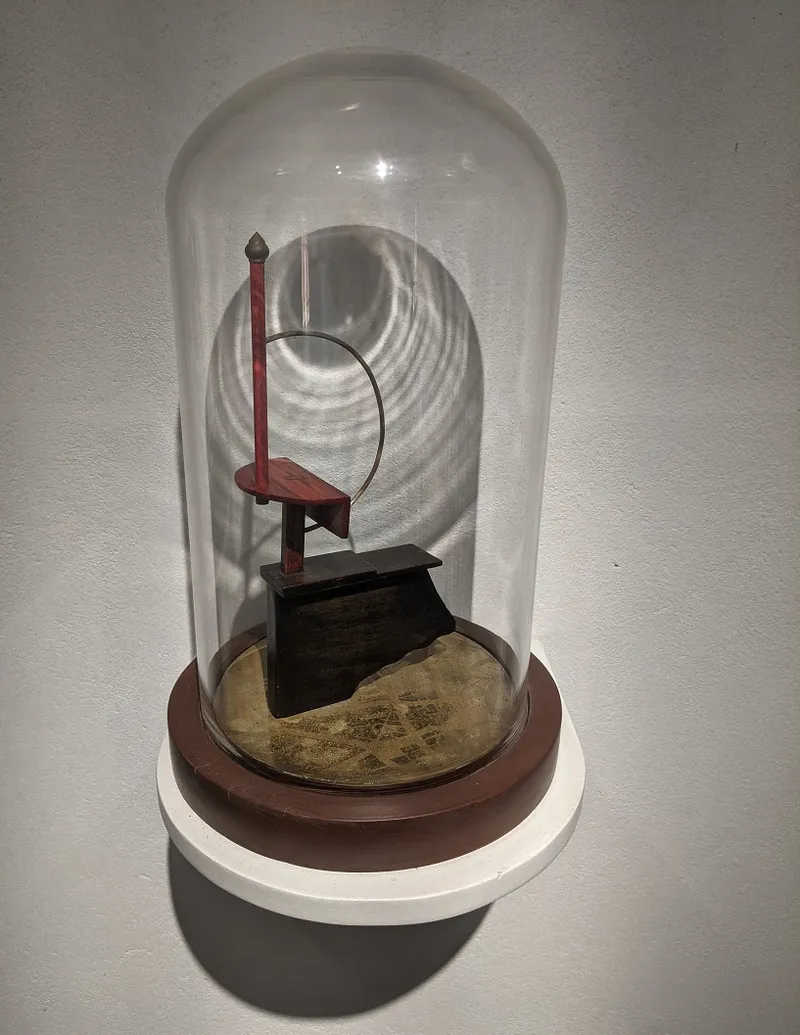
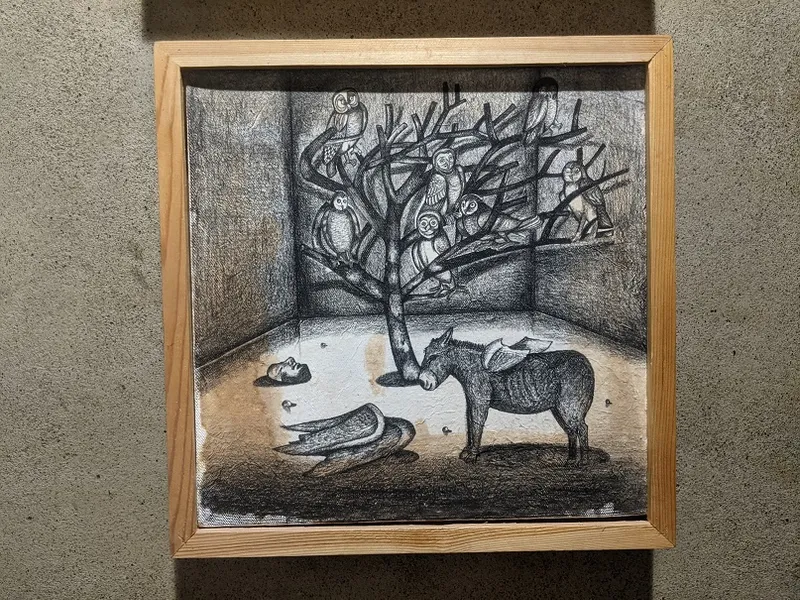
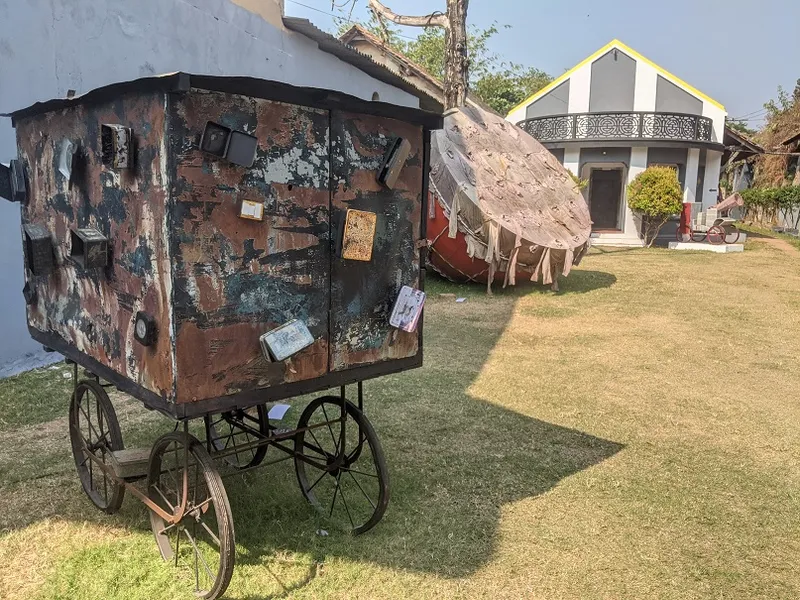
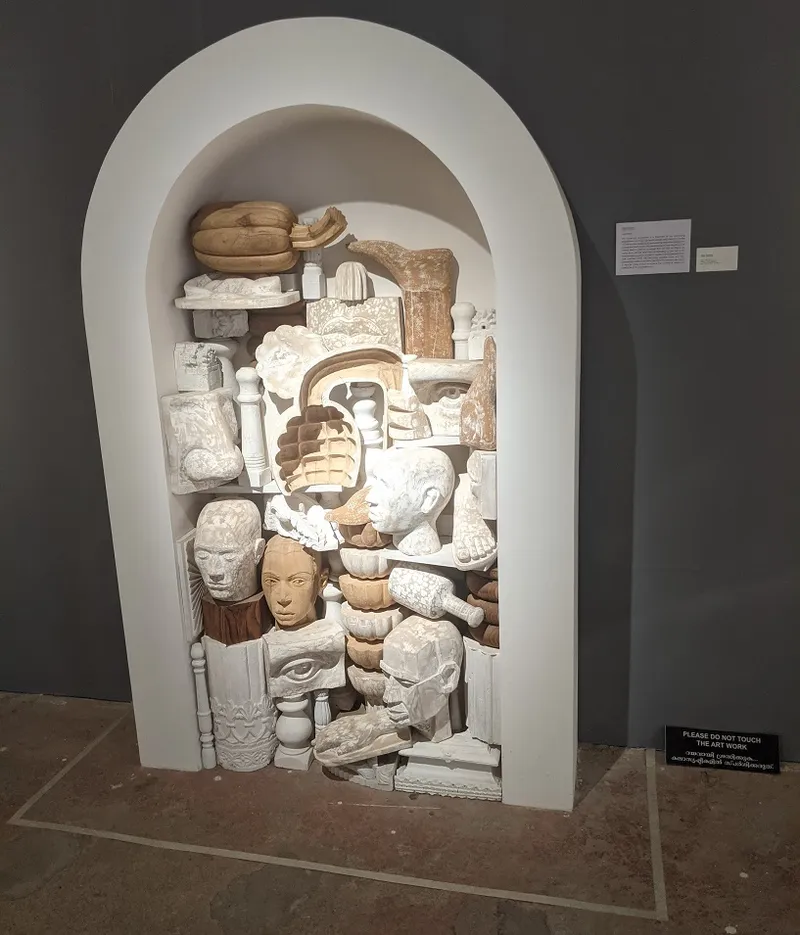
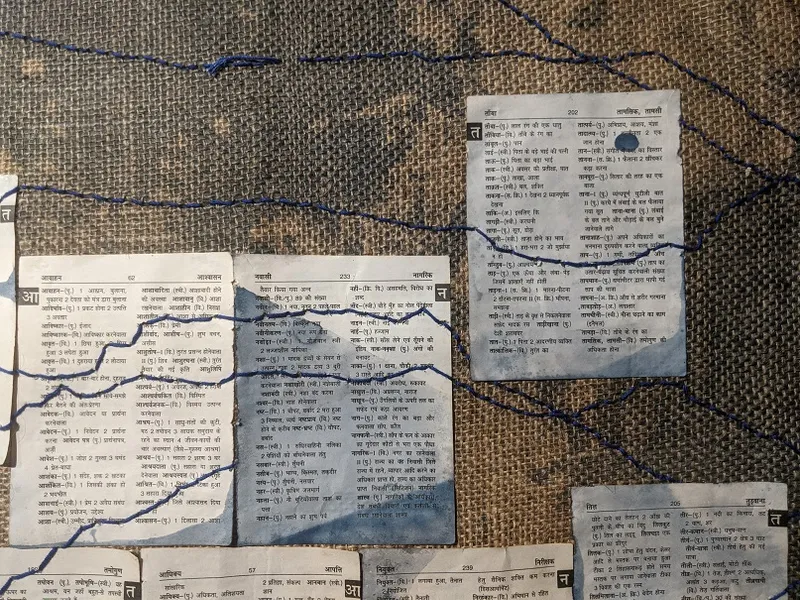
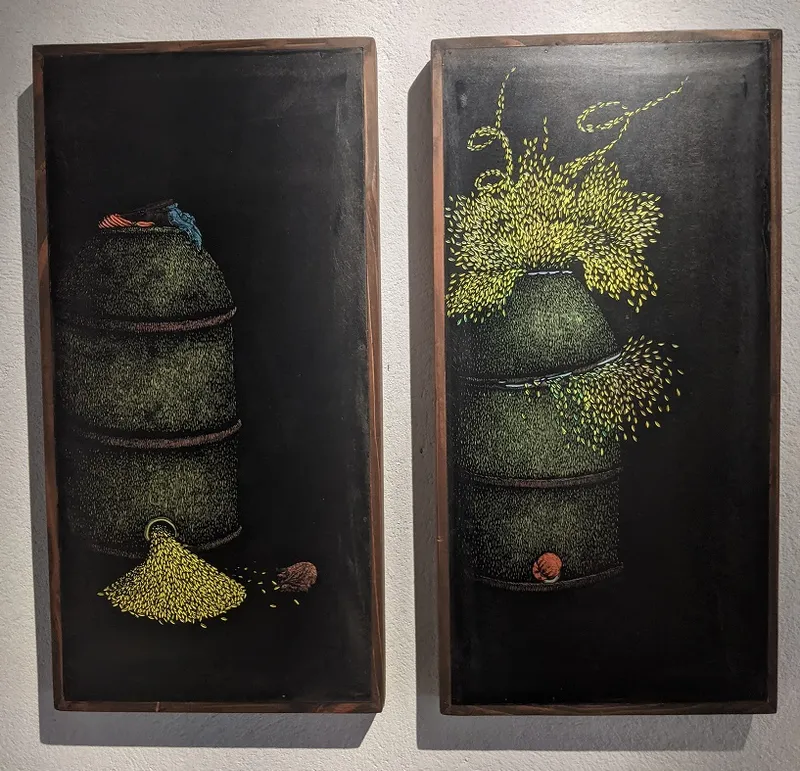
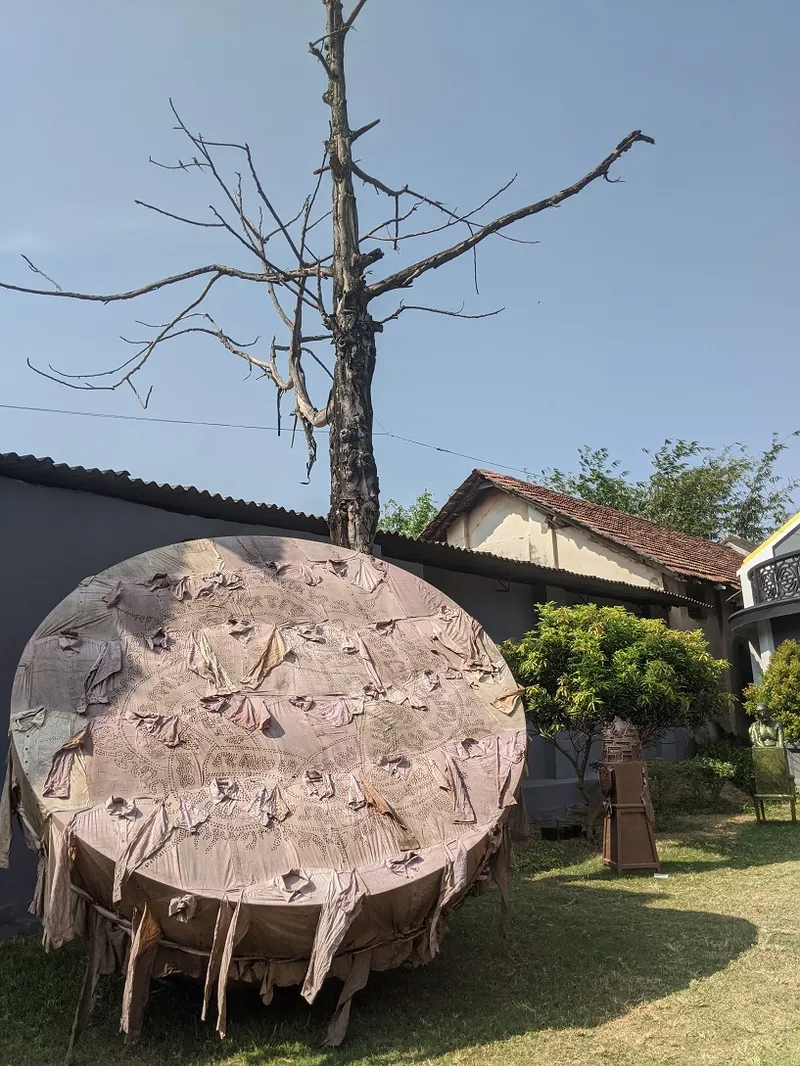
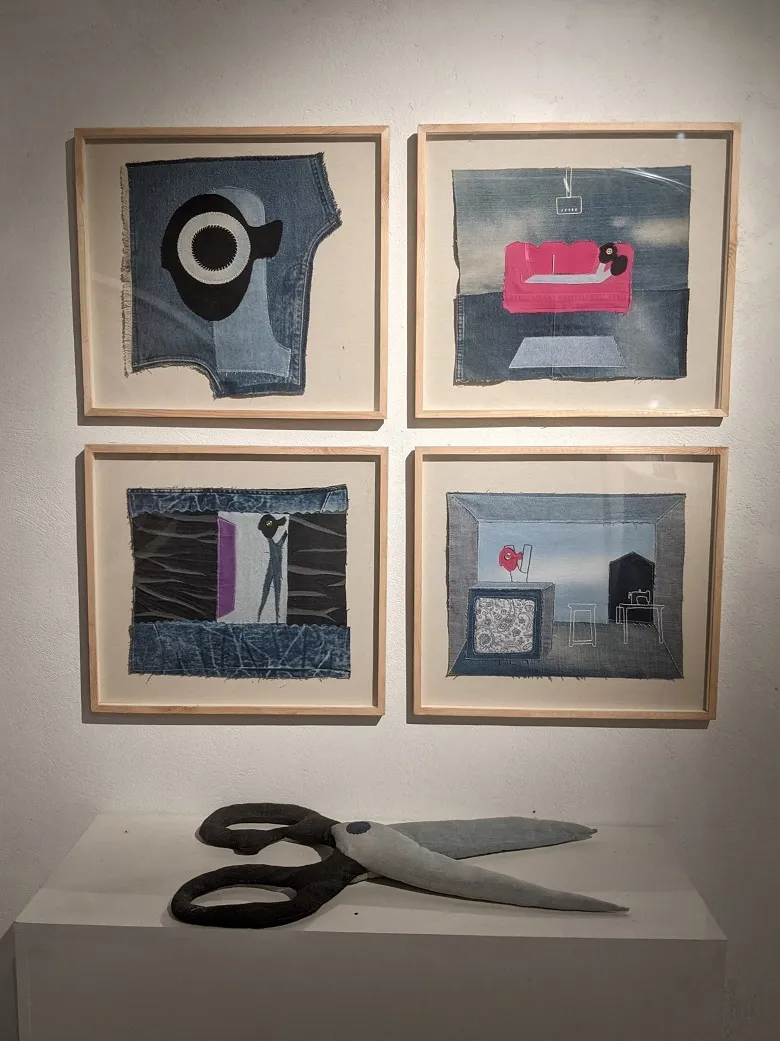
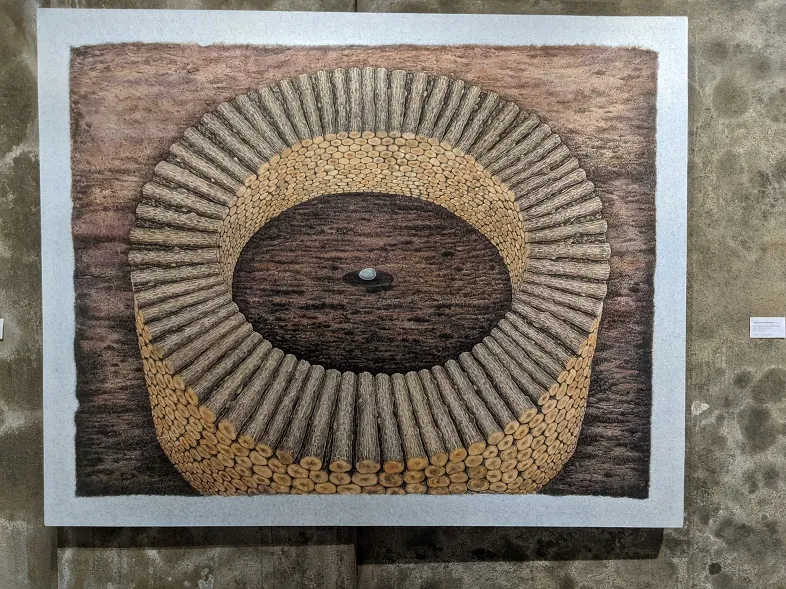
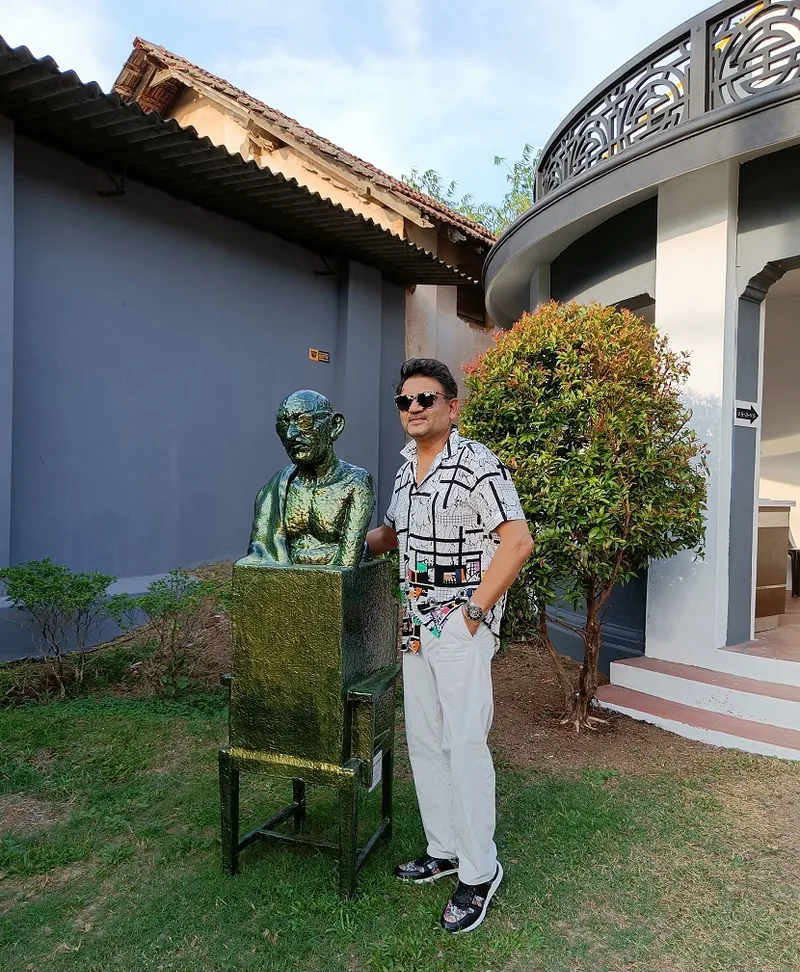
Vijay Patel, Founder, Vis-a-vis Art Gallery
(All artwork photographs were taken by Madanmohan Rao on location at the exhibition.)
See also the YourStory pocketbook ‘Proverbs and Quotes for Entrepreneurs: A World of Inspiration for Startups,’ accessible as apps for Apple and Android devices.

Atul Tiwari is a seasoned journalist at Mumbai Times, specializing in city news, culture, and human-interest stories. With a knack for uncovering compelling narratives, Atul brings Mumbai’s vibrant spirit to life through his writing.

